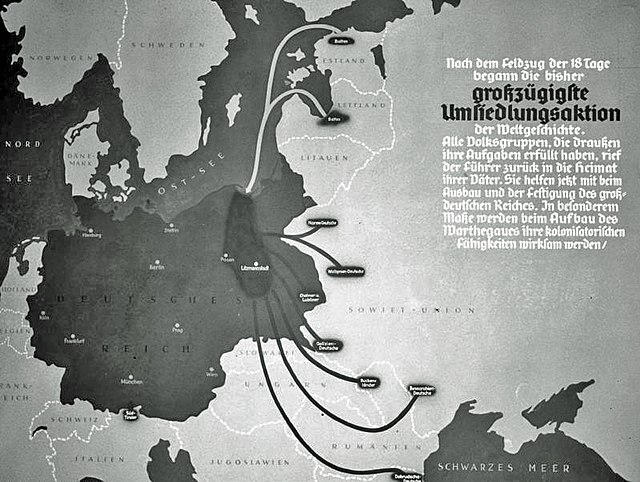The Völkisch movement was a German ethnic nationalist movement active from the late 19th century through the dissolution of the German Reich in 1945, with remnants in the Federal Republic of Germany afterwards. Erected on the idea of "blood and soil", inspired by the one-body-metaphor, and by the idea of naturally grown communities in unity, it was characterized by organicism, racialism, populism, agrarianism, romantic nationalism and – as a consequence of a growing exclusive and ethnic connotation – by antisemitism from the 1900s onward. Völkisch nationalists generally considered the Jews to be an "alien people" who belonged to a different Volk from the Germans.
magazine advocating for Volkisch politics - 1919
Blood and soil is a nationalist slogan expressing Nazi Germany's ideal of a racially defined national body ("Blood") united with a settlement area ("Soil"). By it, rural and farm life forms are idealized as a counterweight to urban ones. It is tied to the contemporaneous German concept of Lebensraum, the belief that the German people were to expand into Eastern Europe, conquering and displacing the native Slavic and Baltic population via Generalplan Ost.
Richard Walther Darré addressing a meeting of the farming community in Goslar on 13 December 1937 standing in front of a Reichsadler and Swastika crossed with a sword and wheat sheaf labelled Blood and Soil (from the German Federal Archive)
Origin of German colonisers in annexed Polish territories. Was set in action "Heim ins Reich"



